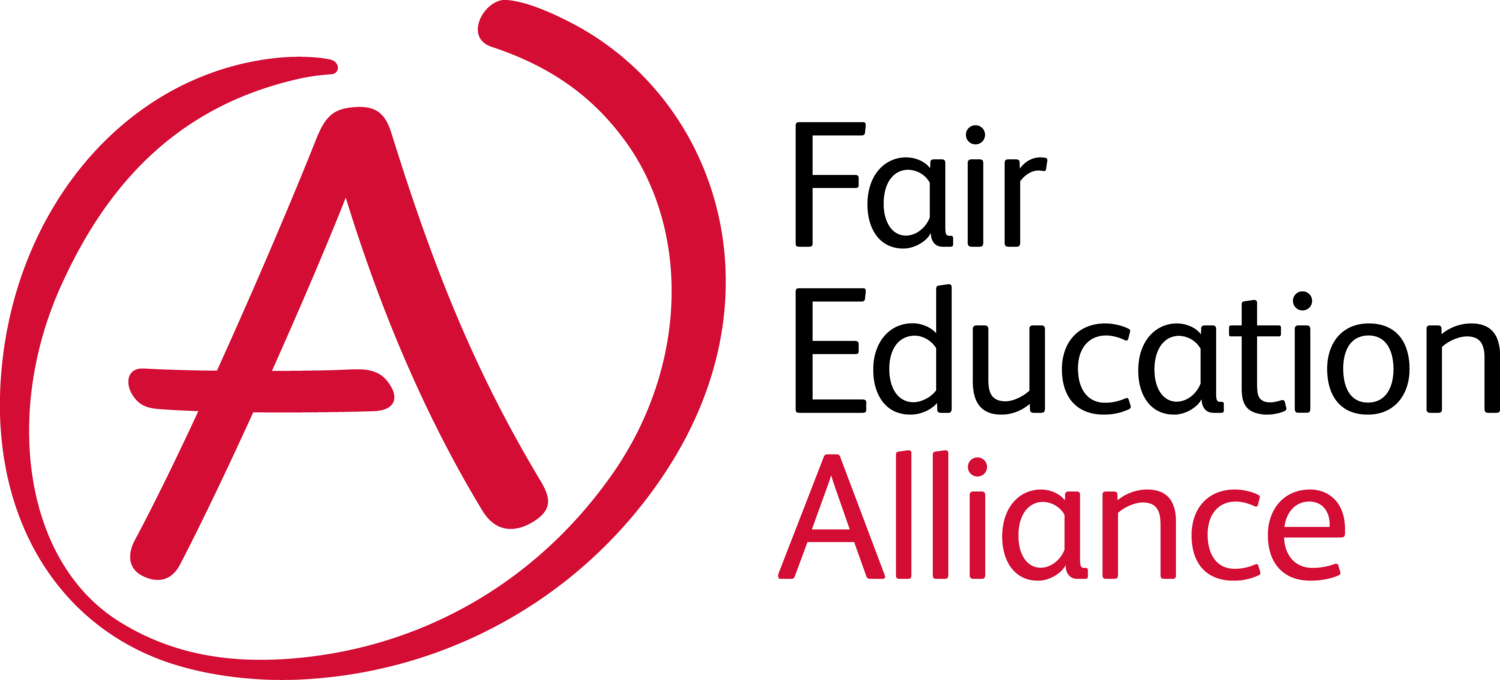London, 13 April 2016
The Fair Education Alliance (FEA) has today published its second annual State of the Nation Report Card. The report finds that educational inequality remains deeply entrenched in the UK and outlines a number of policy recommendations for closing the gap between the poorest and more affluent students. The hard hitting recommendations include an overhaul of careers guidance, a mortgage deposit scheme for teachers and a greater effort by schools to promote the wellbeing and mental health of students.
Endorsed by an alliance over 50 members and supporters (including Teach First, Save the Children, Achievement for All, NAHT, Business in the Community, Family Links and UBS - the founding corporate supporter and lead sponsor), the Report Card evaluates the UK education gap; measuring how the performance, prospects and wellbeing of young people from the poorest communities compares to their peers from more advantaged backgrounds. The FEA has set five impact goals to be achieved by 2022. The Report Card reports on progress on each.
1. Narrow the primary school literacy and numeracy attainment gap
2. Close the gap in GCSE attainment
3. Improve the resilience and wellbeing of young people, especially in poorer communities
4. Narrow the participation gap in post 16 education or training
5. Close the graduation gap, with a particular focus on the most selective universities
There has been marginal progress on some indicators in the last 12 months, notably on GCSE attainment in the North East of England and a very small narrowing of the university graduation gap across the country. Progress has been static on the majority of indicators and on current trends, none of the 2022 impact goals will be realised.
In response to the findings, the FEA is calling for the adoption of a number of policies to drive progress in closing the gap.
- Early years investment: Every group setting serving the 30% most deprived neighbourhoods in England should be led by an early years teacher or equivalent specialist by 2020. Collaborative models of continuing professional development should be implemented across networks of primary schools to share best practice in numeracy and literacy, including the sharing of specialist teachers.
- Extra support and networks for teachers: To incentivise high performing teachers to commit to an area, government should trial the use of a mortgage deposit scheme to enable professionals to make the first step on the housing ladder.
- To share networks and build best practice, every school should be part of a cluster or collaboration of schools; these may include academy chains, federations, cooperatives or any similar structure with strong mutual accountability.
- Promoting and measuring character development, wellbeing and mental health: All school staff should receive evidence-led professional development and training to enable them to better support the development of these key qualities in children. Schools should develop an integrated approach to the character development of pupils, including a focus on social and emotional skills and good mental health for both children and staff.
- To contribute to progress, FEA members will be working to creating a consensus behind an approach to measuring wellbeing and resilience.
- Careers guidance: Highly trained advisers should be placed in the most disadvantaged schools to guarantee that their students receive individualised and impartial expert advice. Schools should build strong long-term partnerships with one or two key businesses on careers advice and the process should begin at primary school.
Sir Richard Lambert, Chair of the Fair Education Alliance commented:
“Inequality in education is deeply entrenched in our country and our Report Card is a stark reminder of the scale of the challenge. But I am confident that we can and will close the education gap. The Fair Education Alliance is an inspiring coalition of companies, charities and third sector organisations. Drawing on the talents, influence and passion of our members, I believe we can play an integral role in helping to deliver a high quality education for every child in Britain”.
The FEA, launched in 2014 has almost tripled in size over the last year. Oxford University, UCAS, Allen & Overy and The English Speaking Union are just some of the organisations that have joined the alliance over the past month. Will Kennard of Chase and Status will become a Fair Education Ambassador on behalf of the Alliance.
The report can be downloaded here
